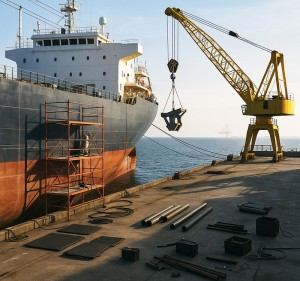If you work with ships, you already know this: not all parts are created equal. A ship might look massive and indestructible, but its safety often depends on small, overlooked pieces—like marine valves. These valves control the flow of seawater, fuel, oil, and ballast. Pick the wrong one, and you’re looking at leaks, downtime, and expensive repairs. Pick the right one, and you’ve got peace of mind at sea.
1. Real Experience at Sea
Some companies say they make “marine valves,” but do they really understand life offshore? Saltwater corrosion, constant vibration, high pressure—it’s not the same as making valves for a factory. A manufacturer with years in the marine field has already faced those challenges. Ask them what ships or projects they’ve supplied to. Their track record will tell you more than any sales pitch.
2. Certifications You Can Trust
Marine work is global. Your valves should meet global standards too. Look for approvals from DNV (Norway), ABS (USA), LR (UK), BV (France), or CCS (China). If a supplier can’t show you these certificates, think twice. Certifications prove that their products can actually perform where it counts.
3. The Right Valves, in the Right Materials
Every system on board has different needs. Some pipelines call for brass valves because they resist seawater corrosion. Others need stainless steel or cast iron for handling pressure. The best manufacturers don’t just offer one or two options. They have a complete range—gate valves, globe valves, check valves, butterfly valves, ball valves—in materials that suit your ship.
4. Tested Before You Get Them
A valve should never leave the factory untested. Ask your manufacturer about hydrostatic tests, leak tests, and material checks. If they work under ISO 9001, that’s even better. It means they have strict quality control in place, so you’re not the one finding flaws later at sea.
5. Service That Sticks Around
A sale shouldn’t be the end of the story. Valves wear out. Parts need replacing. Good manufacturers offer after-sales service, spare parts, and technical support. The best ones stay with you for the life of the valve, not just until the invoice clears.
6. Who Else Trusts Them
Here’s a simple test: look at their clients. If big shipyards, offshore operators, or global shipping companies use their valves, that’s a solid sign. A manufacturer trusted worldwide is more likely to deliver products you can rely on.
Post time: Sep-09-2025

